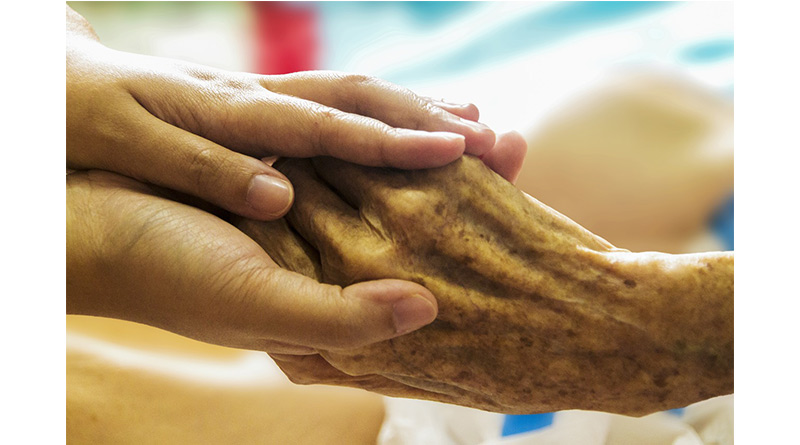Quarter Of A Million Sign Petition Against Care Home Visit Ban
A petition with over 250,000 signatures has been delivered to Downing Street on Thursday September 16th, calling on the Government to enshrine in law the right of everyone living in a care home to nominate an essential visitor / caregiver who will be enabled to visit in any situation.
Eighteen months into the pandemic, campaigners say care home residents are still being deprived of the right to a family life with some only allowed one 15 minute visit from just one family member every two or three weeks, despite all parties being fully vaccinated.
100-year-old care home resident Frances Heaton has issued a video plea for greater freedom, complaining that thousands of people can go to pop festivals but she is being prevented from seeing two of her children at her home in Yorkshire.
Ms Heaton said “human rights and equality are out of order altogether”, as 240,000 people signed a petition demanding a new law ending isolation for care home residents, with many saying care operators are still refusing to follow government advice on facilitating visits and are imposing their own stricter regimes. The petition is titled: “Please let me hug my family before it’s too late!”.
In a video, Frances says: “After 18 months of being shut out from the outside world, my daughter can now see me in my room but my other daughter and my son are not allowed in my room.
“But 90,000 people can visit the Leeds [music] festival. Human rights and equality is out altogether.” Government guidance has been amended to include the need for every resident to nominate an essential care giver / visitor that can visit in all circumstances, including during a Covid outbreak. But despite this, families say many care homes refuse to follow the official government guidance – as it is advisory and not law – and instead impose their own more restrictive visiting regime.
John’s Campaign says that residents of care homes have been largely forgotten, and while many might assume that their lives have returned to some kind of normality, this, they say is not the case. The restrictions persist and the suffering continues.
The voluntary approach has failed they added. Too many homes continue to ignore the current government guidance that seeks to promote the concept of the Essential Family Caregiver. Legislation must now preserve a fundamental human right that has been so flouted during the past year and a half, with incalculable cost to those reaching the end of their life.
In May the Joint Committee on Human Rights drew up a Statutory Instrument to be included in Regulation 9 of the Health and Social Care Act 2008 that would make this intimate contact a right (dependent on an Individual Risk Assessment). This could be passed into law immediately. We then expect it to be monitored and enforced as a fundamental part of person-centred care. People who live in care homes should not be treated differently from the rest of the UK population when there is no legal basis for differentiation.
Campaigners Rights for Residents protested at the gates of Downing Street at 1pm on alongside Ruthie Henshall, a West End performer turned ambassador for Rights for Residents campaign group, who says she has been personally affected by harsh visiting restrictions imposed in care homes during the pandemic.
She is now urging Health Secretary Sajid Javid to support ‘Gloria’s Law’.
She says her mother Gloria, aged 87, died in a care home and she witnessed “her decline from the other side of a window”, over many “torturous months”.
The petition posted on change.org states: ‘Family contact is an essential part of care that has been denied from residents during the pandemic and the huge deterioration in their mental and physical health has been shocking.
‘Many have simply given up the will to live, leaving families unable to say their last goodbyes. Whilst the general public can socialise whenever and wherever they want, many residents and their families have to plead with their care home manager just to be allowed to sit in their own room together.’






